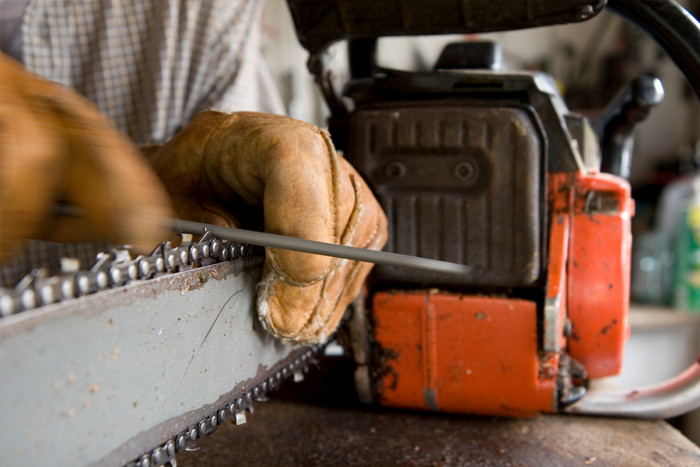Saw Doctor
Kaiwhakatika Kani
Alternative titles for this job
Saw doctors set and adjust sawmill saws and repair, grind and sharpen hand, band and circular saws.
Pay
Saw doctors usually earn
$49K-$65K per year
Source: careers.govt.nz research, 2020.
Job opportunities
Pay
Pay for saw doctors varies depending on experience.
- Saw doctors usually start on the minimum wage or a little more, with rates increasing as they gain experience.
- Trained saw doctors may earn up to $65,000 a year.
Source: careers.govt.nz research, 2020.
- PAYE.net website - use this calculator to convert pay and salary information
- Employment New Zealand website - information about minimum wage rates
(This information is a guide only. Find out more about the sources of our pay information)
What you will do
Saw doctors may do some or all of the following:
- examine saws for faults
- fix saws by welding, replacing teeth and hammering out lumps and twists
- sharpen saws using a file or filing machine and adjust tension
- maintain sawmill equipment and machinery
- complete relevant documentation
- ensure workshop areas comply with safety standards.
Skills and knowledge
Saw doctors need to have:
- mechanical and technical skills
- welding skills
- knowledge of saw repair, sharpening and maintenance
- knowledge of saw speeds, and wood and metal properties
- an understanding of safe working practices.
Working conditions
Saw doctors:
- usually work regular business hours, but may work shifts at a sawmill
- work in sawmills, manufacturing or engineering workshops, or for saw and blade-sharpening companies
- may work in noisy and hazardous conditions
- may travel locally to visit clients.
Entry requirements
To become a saw doctor you need to complete an apprenticeship and gain a New Zealand Certificate Wood Manufacturing – Saw Doctoring (Level 3) or a New Zealand Certificate in Saw Doctoring (Level 4).
Competenz and Toi Ohomai oversee saw doctor apprenticeships and training courses.
- Competenz website - saw doctor apprenticeships and training
- Toi Ohomai website - forestry and wood manufacturing industry training courses
- More information about apprenticeships
Secondary education
There are no specific secondary education requirements to become a saw doctor. However, construction and mechanical technologies, maths and physics are useful.
Personal requirements
Saw doctors need to be:
- accurate, with an eye for detail
- patient and methodical
- practical
- safety-conscious.
Useful experience
Useful experience for saw doctors includes:
- general engineering work
- timber machining
- work in a sawmill.
Physical requirements
Saw doctors need to have good eyesight (with or without corrective lenses) and good hand-eye co-ordination.
Find out more about training
- Competenz
- 0800 526 1800 - info@competenz.org.nz - www.competenz.org.nz
- Toi Ohomai
- 0800 86 46 46 - info@toiohomai.ac.nz - www.toiohomai.ac.nz
What are the chances of getting a job?
Strong demand for qualified saw doctors
Demand for saw doctors is good due to increased demand for processed wood in New Zealand so more saw doctors are needed to maintain wood processing equipment.
There is also a shortage of qualified saw doctors in sawmills.
According to the Census, 270 saw doctors worked in New Zealand in 2018.
Most saw doctors employed in timber processing industry
Most saw doctors are employed by sawmills and timber processing plants. Others work for:
- engineering companies
- tool manufacturers
- specialist saw and blade-sharpening companies.
Sources
- Aung, Z, engineer and manager, D&S Sharpening Services, careers.govt.nz interview, November 2020.
- Competenz website, accessed January 2021, (www.competenz.org.nz).
- Forest Owners Association, 'Facts and Figures 2019/20 New Zealand Plantation Forest Industry', (www.nzfoa.org.nz).
- Howieson, J, head saw doctor, Kaituna Sawmill, careers.govt.nz interview, January 2021.
- Martin, S, chief executive, Checkmate Precision Cutting Tools Ltd, careers.govt.nz interview, November 2020.
- New Zealand Trade and Enterprise, 'Wood Processing Prospectus', accessed January 2021, (www.nzte.govt.nz).
- Stats NZ, '2018 Census Data', 2019.
- Toi Ohomai website, accessed January 2021, (www.toiohomai.ac.nz).
(This information is a guide only. Find out more about the sources of our job opportunities information)
Progression and specialisations
Saw doctors may progress to set up their own saw doctor business, or become a head saw doctor, overseeing a team of staff. They may also become sawmill supervisors or managers.
Last updated 25 March 2025


